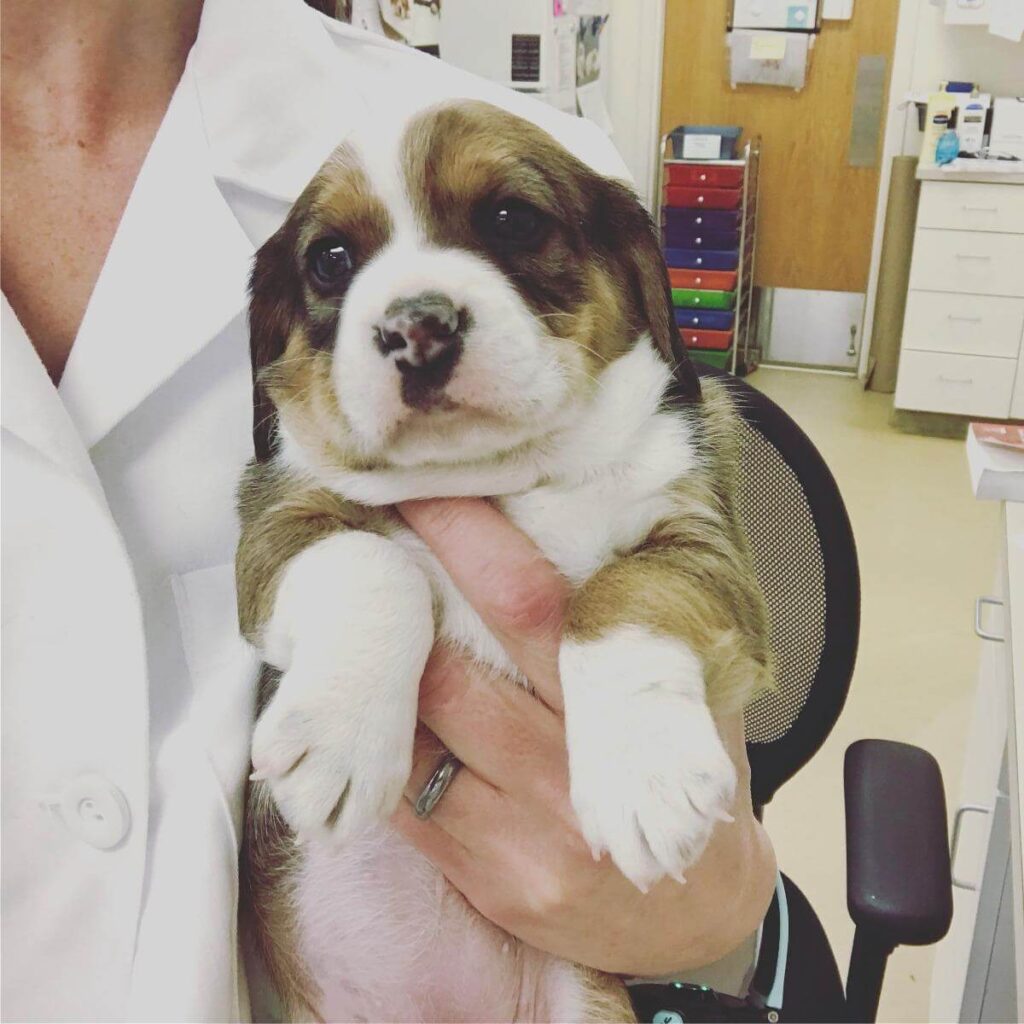Did you know that puppies develop a big part of their adult personality by 16 weeks of age? It’s true and if you want a happy, well-adjusted dog for a lifetime the time to start fostering healthy brain development is as soon as you take home your new bundle of joy. Follow these five easy (and fun) steps to raising a great dog!
- Handle your puppy as much as possible: make it a point to touch your puppy all over-ears, feet, tail, mouth, belly. Do this gently and use lots of praise including treats. Squeeze your puppy in a gentle hug for a few seconds each day to mimic what a veterinarian or groomer may have to do to work with your dog. Remember not to push your puppy too far, if he seems uncomfortable or scared take a break and try again later.
- Socialize your puppy: introduce your puppy to people of all ages (especially children), men and women. Leave some treats outside your front door and ask trusted friends and neighbors to come over and give your puppy a treat as soon as they come into the house. Bonus points if you can get your mail carrier or delivery person to do this!
- Play dress up your puppy may someday need to wear a coat or boots or even a bandage. Practice putting a small t-shirt on him to introduce the concept of clothing. An E-collar (“cone of shame”) is an extremely important part of some medical treatments but can be very scary to dogs that have never worn them. Consider buying one early on in your dog’s life and having him wear it for a few minutes at a time.
- Bring the noise! Expose your puppy to loud noises and “scary” objects such as the vacuum cleaner. It is normal for puppies to startle when they hear a loud noise but showing a puppy those things are not harmful can prevent noise phobias from developing later in life. Reward your puppy with a treat when he is calm.
- Go on adventures with your puppy: take your puppy with you to expose him to new places and experiences. Take him to the vet for routine visits but consider stopping in for just a treat making it a “happy visit”. Go to friends and relative’s houses and for trips in the car. Just be sure to ask your vet before visiting places where other dogs visit such as dog parks and pet stores.
Remember the more time you invest now the fewer behavior problems your dog may have in the future. And, let’s be honest, spending time with your puppy is fun!




